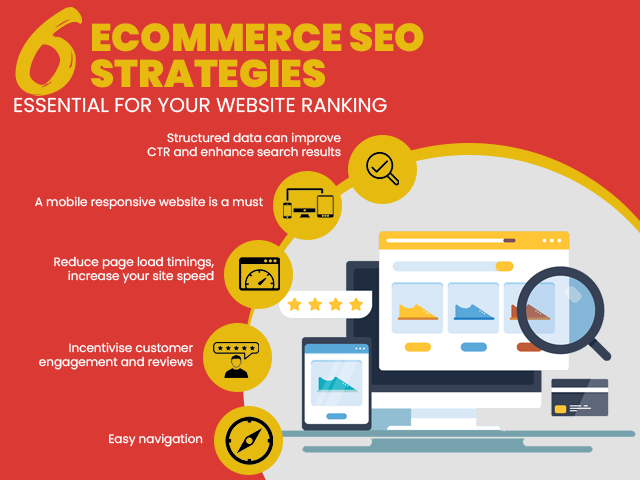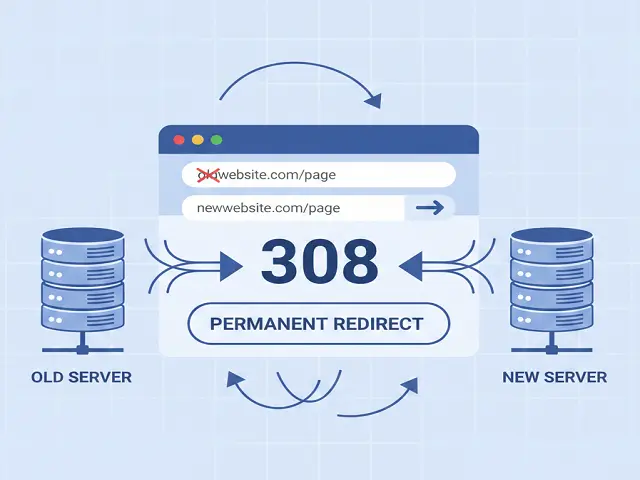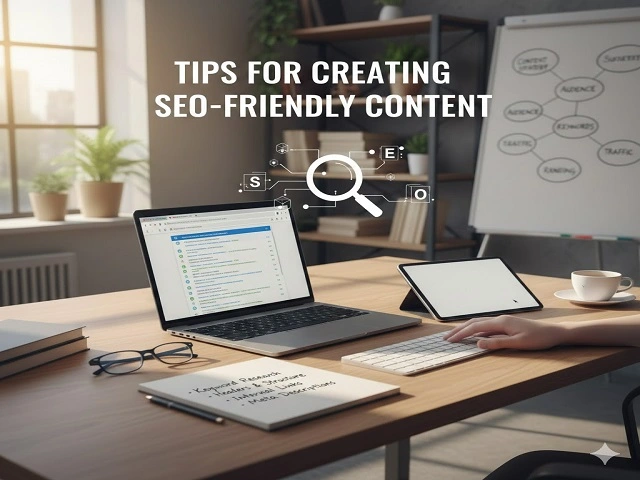Boost your online store’s visibility and rankings with proven eCommerce SEO strategies designed to drive long-term results.
Running an eCommerce business in 2025 means more than just having great products and a slick website. If your online store isn’t showing up on search engines, you’re losing out on potential buyers. That’s where ecommerce SEO steps in—it’s not just an option; it’s essential.
With digital competition fiercer than ever, a solid ecommerce SEO strategy can be the difference between thriving and barely surviving. Whether you’re starting from scratch or looking to fine-tune your existing approach, this guide will walk you through the SEO essentials for boosting your rankings, attracting quality traffic, and growing your online sales.
Why SEO Matters in eCommerce?
Before jumping into tactics, let’s quickly understand why SEO in ecommerce is such a game-changer.
- 93% of online experiences begin with a search engine.
- Organic traffic converts better than paid ads over time.
- Good SEO builds trust and credibility.
- Search-optimized content supports long-term business growth.
Unlike paid ads that vanish the moment your budget runs out, SEO ecommerce helps you build sustainable traffic that compounds over time.
1. Optimize Product Pages with Intent in Mind
Each product page should be treated like a mini-landing page. This means improving content for both keywords and what users are looking for.
Here’s how to do it:
- Use descriptive, keyword-rich product titles.
- Write unique product descriptions (avoid copy-paste from manufacturers).
- Add alt-text to images for better accessibility and SEO.
- To enhance the value and depth of your content, include FAQs or reviews.
This approach enhances user experience and signals relevance to search engines—two cornerstones of effective e-commerce SEO.
2. Site Architecture That Supports SEO
A cluttered website structure confuses users and search engines. Make sure your site is easy for search engines to explore, use, and list.
Follow these best practices:
- Use a simple, logical hierarchy (Homepage > Category > Subcategory > Product).
- Ensure every page is reachable within 3 clicks.
- Build SEO-friendly URLs (e.g., /men/shoes/running instead of /prod?id=8743).
- Use breadcrumbs to enhance navigation and indexing.
Working with an experienced ecommerce SEO agency can help ensure Make sure your site structure matches how users behave and how search engines work.
3. Keyword Research Beyond the Basics
Many eCommerce owners aim for high-volume keywords, but these keywords are very competitive. Instead, balance your targeting with long-tail and product-specific terms.
An effective keyword strategy includes:
- Researching phrases users type when shopping.
- Including question-based and voice search-friendly keywords.
- Mapping keywords to the correct content type (blogs, guides, category pages).
A skilled ecommerce SEO company knows how to find the sweet spot between keyword volume, competition, and buyer intent.
4. Create High-Quality Content for Every Stage of the Buyer Journey
SEO isn’t just for product pages. Creating helpful content can attract top-of-funnel traffic and convert users into buyers.
Types of content to consider:
- How-to guides (e.g., “How to choose the right running shoes”).
- Comparison articles (e.g., “iPhone vs. Samsung for photography”).
- Buyer guides for new customers.
- Seasonal landing pages.
Content marketing backed by ecommerce SEO tips is a powerful way to stay ahead of competitors and bring in warm leads consistently.
5. Technical SEO: The Hidden Game-Changer
Without strong technical foundations, even great content may not be found. Technical SEO services are crucial for keeping your website healthy and discoverable.
Key technical SEO elements:
- Fast loading speed (under 3 seconds is ideal).
- Mobile-first design and responsiveness.
- Secure HTTPS protocol.
- Canonical tags to avoid duplicate content.
- Structured data for rich snippets.
When you partner with an ecommerce SEO services provider, they ensure these foundational pieces are in place and regularly monitored.
6. Link Building and Authority Building
Backlinks are important, especially in eCommerce where competition is strong. The right ecommerce SEO strategy includes earning links from trusted, relevant websites.
Top link-building strategies:
- Partner with influencers or bloggers for product reviews.
- Get featured in gift guides or round-up posts.
- Use PR outreach for new product launches.
- Make resources or infographics that people can easily share.
Authority and trust are closely tied to ranking success, and consistent link-building is a long-term investment.
SEO Success: A Long-Term Investment
While it’s tempting to look for quick wins, great SEO in ecommerce is a long game. The sooner you begin, the faster you’ll see lasting improvements in traffic and sales.
Whether you’re building a website from scratch or scaling your digital presence, implementing these ecommerce SEO tips can dramatically boost your rankings.
Winning with eCommerce SEO
Effective ecommerce SEO isn’t a set-it-and-forget-it game. To create effective content, plan carefully and focus on data. It also requires strong technical skills and a good understanding of what buyers want. To attract more quality visitors to your online store, use effective strategies. Target relevant keywords. Create a clear website structure. Provide valuable content. Build your authority in your niche.
At Savit Interactive, we help brands like yours grow through powerful SEO ecommerce solutions tailored to your market and goals. As a trusted e-commerce SEO agency, we combine on-page and off-page strategies to deliver meaningful results. Whether you’re looking for an expert ecommerce SEO company or comprehensive ecommerce SEO services, we’re here to help you succeed online.



